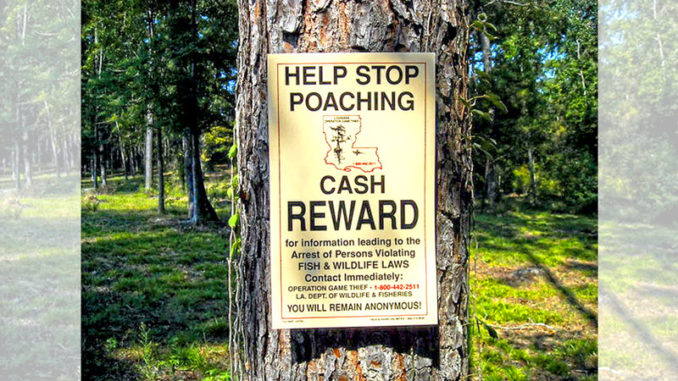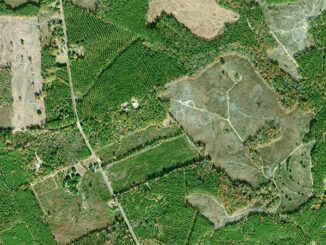
Violations are down in recent years, but some guys still don’t get it right.
I like to think fish and wildlife violations are not as frequent as they were when I was a young wildlife agent. They aren’t — for a lot of reasons. Public awareness, less tolerance and better trained and equipped officers are the short list.
But not everyone in the hunting and fishing fraternity smoked the peace pipe, and today’s wildlife agents continue to round up bad boys just like in the old days. Let’s take a look at a few apprehensions from 2019, proving once again that although things change, they stay the same.
Let’s begin with a couple of oyster cases. Few people in Louisiana north of I-10 realize the significance of the state’s seafood industry. Oysters are a big part of it, with Louisiana producing 40 percent of all the oysters harvested in the United States. Wildlife agents are responsible for enforcing oyster-harvest regulations to insure a clean and safe product for the consumer.
But not everyone shares this concern.
Shell games
In May, agents cited three Houma men for allegedly harvesting oysters from a polluted area. The three, ages 40, 25 and 34, were spotted taking oysters in a polluted location in Bay Antoine. Agents seized and returned to the water 15 sacks of oysters. The offense carries fines of $900 or more, plus jail time, loss of harvester license and additional penalties and restrictions.
Another oyster case in December caught my attention. An aerial surveillance drone was used to catch a Terrytown man allegedly taking oysters from a polluted area in lower Calcasieu Parish. Ten sacks of oysters were seized, and he was cited for the offense, plus additional alleged sanitary code and vessel numbering violations.
LDWF has been using drones on oyster patrols since early 2018. What I would have given for one of those, way back when.
High-tech hoods
Technological advances also have sinister applications. Fish shocking has moved into the 21st century, with smaller, more concealable devices. In August, wildlife agents cited two men in Iberville Parish for allegedly taking fish with an electronic device.
Acting on a report of two men shocking fish in Grand River, agents spotted a boat matching the description. It was at a dock where a man was cleaning fish. The boat contained dip nets, lots of wire and — low and behold — a small electronic device still connected to a battery.
During questioning, the two allegedly admitted to resorting to shocking because they could not catch any fish in their hoop nets. When asked about hoop-net gear licenses, the resourceful pair admitted to not having licenses. The shocking device, dip nets and 16 catfish were seized. Penalties include fines of up to $950 for taking fish illegally and $50 for no hoop-net license.
Deerly beloved
Deer numbers are stable, and it’s a good thing, since we never run short of deer poachers. An investigation into the 2018-19 deer hunting activities of a 57-year-old LaSalle Parish man resulted in his arrest in October for multiple alleged deer regulation violations. The list of infractions included taking over the limit, possessing illegally taken deer, failing to comply with tagging requirements, using another person’s deer tags and failing to validate deer tags.

In September, U.S. Fish and Wildlife Service and LDWF agents served warrants and interviewed the man at his residence where he admitted to killing 16 deer during the 2018-19 deer season and using tags belonging to others. In addition to fines for the multitude of offenses, the man faces civil restitution totaling $16,246 for the value of the illicitly taken deer.
In a separate case, another LaSalle Parish man was arrested in December for alleged possession of a firearm by a convicted felon, hunting deer during illegal hours, using illegal methods, criminal trespass, possessing a firearm along with a controlled, dangerous substance, possession of methamphetamine, marijuana and drug paraphernalia. A well-placed trail camera revealed the 49-year-old hunting at night and trespassing. Sheriff’s deputies and wildlife agents served search warrants at the offender’s residence, leading to the drug and firearms offenses.
These cases are certainly noteworthy and are good examples of the fine work Louisiana wildlife enforcement agents do to protect our wildlife resources. They are, however, nothing out of the ordinary, as anyone keeping up with LDWF news releases knows.
Don’t tread on me
But one release in April was both surprising and a cause for concern. It was an LDWF reminder to outdoorsmen of harassment violations. Louisiana has a good harassment statute that prohibits disturbing anyone lawfully engaged in hunting or fishing.
Violations of the statute are becoming more common, with individuals claiming ownership of baited or brushed fishing spots cited as common examples. It seems violations include intimidating someone to leave a fishing spot, motion activated sounds or water sprinklers on docks to dissuade the public from fishing or aggressively operating boats around others engaged in fishing to persuade them to leave.
It can get serious, and I heard of one case where a dock owner threw gasoline on people in a boat who were fishing “his” brush top. That’s a sad commentary on how outdoorsmen treat and respect each other today.
Don’t hesitate to report harassment or any other wildlife violations at 800-442-2511 or use LDWF’s tip411. Text LADWF and the tip to 847411 or download the “LADWF Tips” app.

